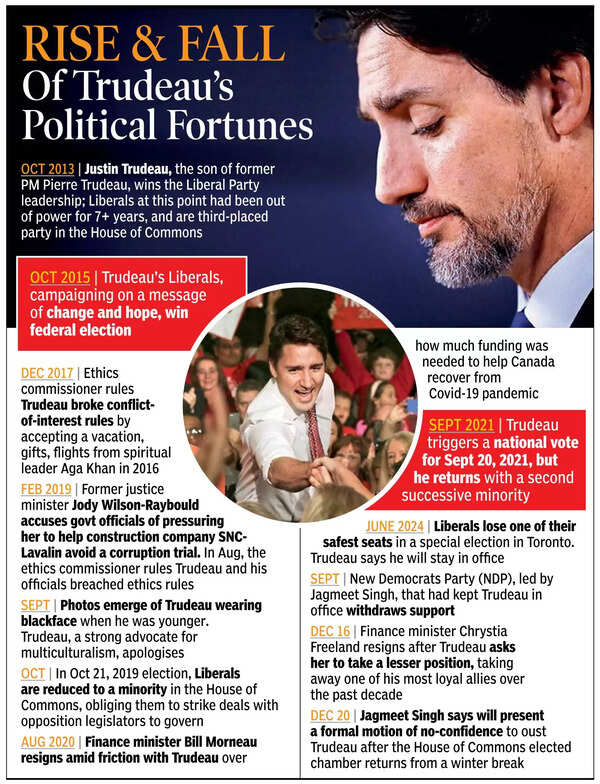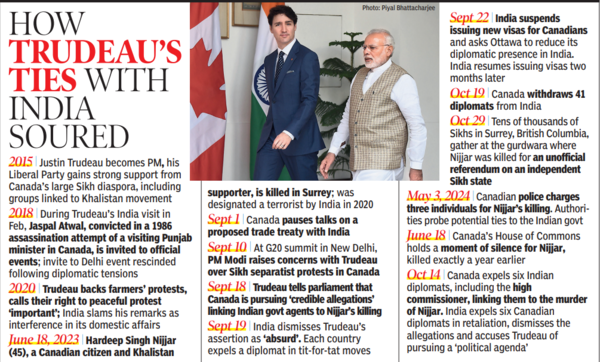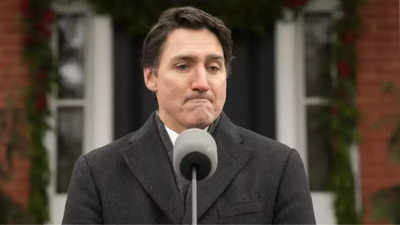Justin Trudeau led Canada as PM for more than nine years before former allies turned against him. Trudeau, 53, the son of longtime former PM Pierre Trudeau, was born into the public eye and inherited his father’s sense of style and showmanship. He is one of the few Canadian leaders to win three consecutive terms in office.
During his time in office, Canada overcame two major crises: the pandemic and then-US President Trump’s demand to renegotiate the trilateral trade deal with Mexico. Trudeau is an avowed feminist committed to gender parity in his cabinets who was ultimately brought down by an ugly breakup with former finance minister Chrystia Freeland, the most powerful woman in his political life.

Trudeau took over as Liberal leader in 2013 when the party was in deep trouble and had been reduced to third place in the House of Commons for the first time. Yet by pushing an upbeat message of “sunny ways”, and taking advantage of voter fatigue with the Conservative govt, Trudeau propelled his party into power in the 2015 election. Trudeau was a media sensation and found his face – not to mention his sharp suits and colourful socks – splashed across magazines around the world. On his first foreign trip in Nov 2015, he was mobbed in a Manila conference and had to be whisked away by his security team. There was also substance. The highlight of his first term proved to be the successful renegotiation of the trilateral trade treaty with the US and Mexico. The Canadian side, led by then-foreign minister Freeland, managed to preserve a pact crucial for the economy.

Over nearly a decade in office, he embraced an array of causes favoured by his liberal base. He spoke in favour of immigration at a time other countries were trying to tighten their borders. He legalised cannabis. His efforts to strike a balance between economic growth and environmental protection were criticised by both the right and left. He levied a tax on carbon emissions and rescued a stalled pipeline expansion project to get more of Alberta’s oil to international markets. Fewer people died from Covid-19 in Canada than elsewhere and his govt gave massive financial support.
He became deeply unpopular with voters in recent years over a range of issues, including the soaring cost of food and housing, and surging immigration. Trudeau had still been planning to run for a fourth term in next year’s election. He kept publicly mum in recent weeks, despite intensifying pressure for him to resign. “The Liberal Party of Canada is an important institution in the history of our great country and democracy. A new PM and leader of the Liberal Party will carry its values and ideals into that next election,” he said Monday. agencies




